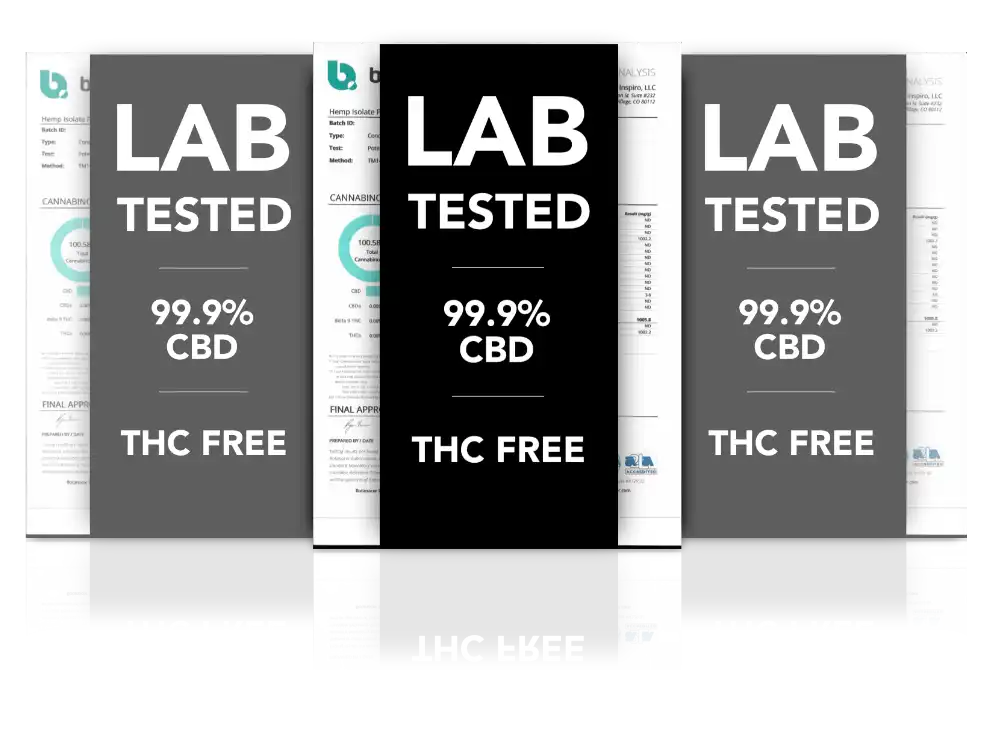CBD absorption and retention
TABLE OF CONTENTS
Cannabidiol (CBD) has become a mainstay in the wellness landscape for its potential health benefits, without the psychoactive effects associated with its more infamous cousin, THC. Understanding how long CBD stays in the system is not just a matter of interest, but one of practical importance for health, employment, and legality concerns. In this article we uncover the scientific underpinnings that determine how long CBD stays in the human body.
What Influences the Absorption of CBD?
CBD gets into the body through various routes, such as ingestion, inhalation, sublingual administration, and topical application. Each method, in turn, is influenced by several factors that determine the degree and speed of CBD uptake:
- Delivery method: Inhalation provides the quickest absorption due to the extensive network of capillaries in the lungs. Sublingual application is also swift, bypassing the digestive system and liver. In contrast, oral ingestion is less efficient, as CBD must navigate the digestive tract and the liver’s first-pass metabolism.
- Dosage and concentration: Higher doses do not mean increased bioavailability. A dosing threshold exists, beyond which the body is unable to absorb any more CBD. Concentration is also key; low dose of a highly concentrated CBD oil can be more effective than a large dose of a low-concentration product.
- Body composition: Weight, fat content, and metabolism play a role. Those with higher body fat percentages may retain CBD for a longer duration due to fat-solubility, leading to a slower release into the bloodstream.
Does Dosage Matter?
The mantra ‘start low and go slow’ is often evoked with CBD, and for good reason. Research suggests that higher doses of CBD doesn't necessarily increase its effects, a concept known as a biphasic effect. This means that small doses may provide specific therapeutic effects, while higher doses might lead to the body’s own regulatory mechanisms neutralizing excess CBD.
Moderation and consistency are crucial, especially for long-term use. Regular dosing schedules help in maintaining a steady concentration of CBD in the body, which might be more beneficial than sporadic large doses that cause peaks and troughs in blood levels.
Is There Build-Up of CBD Over Time?
When consumed regularly, CBD can accumulate in the body. This is because it has a half-life of 18-32 hours on average. Despite the liver’s best efforts to filter out foreign substances, particularly through the cytochrome P450 enzyme system, CBD’s properties—specifically lipophilicity—can enable it to deceptively evade the liver’s mechanisms, leading to a residual effect as levels continually rise.
However, the build-up effect is complex and not universal. Individual differences in metabolism and liver function mean that not everyone will experience the same build-up of CBD over time. Over-the-counter medications, specifically NSAIDs and antibiotics, have been found to prolong the half-life of CBD, causing it to stay in the system longer.
What Does the Research Say?
Clinical research into CBD absorption is providing a more clear picture of its pharmacokinetics. Studies show that CBD reaches peak blood concentrations within 3 minutes to 6 hours depending on the delivery method. Its half-life, around 24 hours, means it takes about a week for the body to clear CBD entirely if a steady daily dose ceases.
Bringing empirical evidence into the context, a study published in the journal Epilepsia indicates that CBD is detectable in the plasma for up to five days post-oral administration, supporting the findings related to its half-life and presence in the human body (Taylor et al., 2018). Moreover, research by the Journal of the American Medical Association underscores the variance in CBD concentrations post-consumption due to diverse metabolic responses among individuals (Bonn-Miller et al., 2017).
Research on chronic CBD administration is limited, but suggestive of increased cannabinoid presence in the fatty tissues and organs. This supports the notion of a cumulative effect, where consistent use may lead to a saturation of CBD in certain body parts, potentially leading to prolonged aftereffects.
Drug Testing and CBD
CBD’s lasting affect in the body has implications for drug testing. Most employment or athletic drug screens look for THC, but the potential for CBD to contain trace elements of THC exists, especially for full-spectrum products. For the less common CBD-specific tests, which are unlikely to be administered unless CBD oil is found in the course of a criminal investigation, residual CBD is also detectable for several days to a week.
Legal and quality considerations are paramount. Always opt for CBD sourced from reputable distributors that adhere to stringent quality and manufacturing standards, ensuring a ‘non-detectable’ level of THC through third-party lab testing.
A Personalized Approach to CBD Use
In light of the multifaceted dynamics that influence CBD absorption and retention, a personalized approach is key. Factors such as the purpose of use, the intended health benefits, and individual body responses should all inform one’s CBD regimen. By working with a healthcare provider, users can tailor their CBD consumption to optimize its utility. It’s clear that there is no one-size-fits-all answer to the question of how long CBD stays in the system.
Sources Consulted for this article
CBD build-up and its effects on the body, it is important to cite sources from credible research on cannabinoid science. The following references have significantly contributed to the understanding of CBD pharmacokinetics and its practical implications:
- Epilepsia: "Pharmacokinetics of Cannabidiol Administered by 3 Delivery Methods at 2 Different Dosages: A Randomized Controlled Trial" by Taylor et al., 2018. DOI: 10.1002/epi4.1220
- Journal of the American Medical Association: "Labeling Accuracy of Cannabidiol Extracts Sold Online" by Bonn-Miller et al., 2017. DOI: 10.1001/jama.2017.11909
- The Permanente Journal: "Cannabidiol in Anxiety and Sleep: A Large Case Series" which provides an extensive review of CBD as a potential treatment for anxiety and sleep disorders. PMID: 30624194
These peer-reviewed studies and reviews offer a comprehensive perspective that advances our capacity to understand and articulate the behavior of CBD within the human body. However, we recognize that scientific knowledge is ever-evolving, and we commit to the continuous monitoring of emerging research to ensure that the guidance we offer remains both accurate and relevant.
For additional detail on product safety and quality standards, individuals may explore resources from:
- U.S. Food and Drug Administration (FDA): for updates on regulations surrounding cannabis-derived products and recommendations for consumers. [FDA Website](https://www.fda.gov/)
- National Institute on Drug Abuse (NIDA): for information on the effects of CBD, THC, and other cannabinoids. [NIDA Website](https://www.drugabuse.gov/)
We encourage our readers to consult these sources for a deeper dive into the science behind CBD. However, always remember that personal health decisions, especially those involving CBD and other supplements, should be made in consultation with a healthcare professional.
 John "Johnny P" Pacheco
John "Johnny P" Pacheco
The founder of Inspiro, LLC – "Johnny P" — is committed to offering the finest quality products at reasonable prices. In fact, we test every batch of CBD for purity. Our focus is on CBD Isolate and related products that are THC-free, as well as education and learning about CBD and its uses and impact on our lives.





